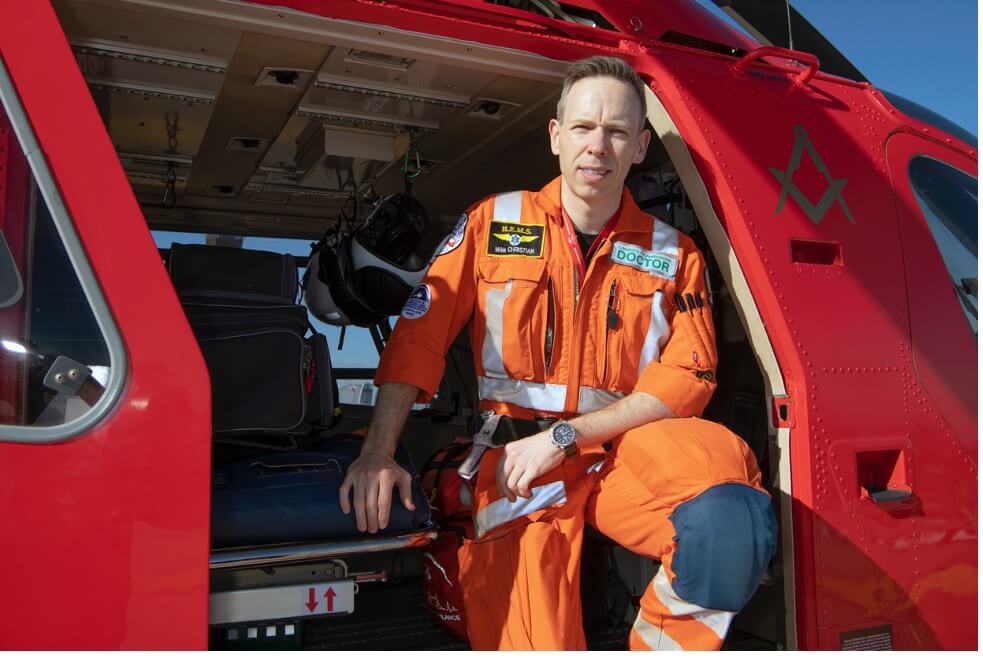When medical emergencies strike, every second counts. In rural and remote communities across British Columbia, where patients often face long travel times to access care, prehospital services play a vital role in saving lives.
A new study led by UBC researchers highlights an innovative approach that could transform prehospital care: physician-led interprofessional teams. These teams, which bring together the expertise of physicians and paramedics, have shown potential to improve outcomes for critically ill and injured patients. Dr. Mike Christian, a clinical professor of critical care medicine at UBC and a transportation consultant to the RCCbc, is a senior author of the study, which points to opportunities for advancing care in rural and remote areas.

Why Prehospital Care Matters to Rural BC
Weather, geography, and long travel times can mean it takes hours—or even days—before patients in rural and remote areas reach a hospital. In such situations, prehospital care becomes a crucial part of saving lives.
“Prehospital care is especially important to rural, remote, and First Nations communities,” explains Dr. Christian. “Our findings suggest that physician-led interprofessional teams could significantly improve outcomes, and it’s a model worth exploring to ensure equitable care for all British Columbians.”
These teams provide advanced clinical decision-making and interventions directly to patients, whether at the scene of their injury or illness or during transport. This approach goes beyond what traditional paramedic practice typically offers, ensuring care is tailored to each patient’s needs while maintaining timely hospital transfer.
Global Evidence, Local Implications
The study, published in the Scandinavian Journal of Trauma, Resuscitation and Emergency Medicine, reviewed data from around the world on physician-led prehospital teams. It found that these teams reduced the mortality risk of critically ill or injured patients by 20% and increased survival rates by 49% compared to paramedic-only care.
“Through this research, we’ve seen how other regions globally—such as Australia, the UK, and Scandinavia—have successfully adopted this model,” says Dr. Christian. “Bringing this model to BC could fill critical gaps in our prehospital care system.”
Success Stories in BC
While physician-led prehospital teams are not yet widespread in Canada, some local examples provide inspiration. North Shore Rescue and the Kootenay Emergency Response Physicians Association (KERPA) already incorporate physicians into emergency response teams, delivering care in challenging environments. However, these initiatives remain limited in scope and do not operate at a province-wide level.
A Vision for the Future
The research team—including UBC medical students Matthew Lavery and Arshbir Aulakh—argues that the introduction of physician-led interprofessional teams across BC could be a game-changer for rural health.
“This research underscores the importance of collaboration and innovation in prehospital care,” says Lavery. “It’s a call to action for policymakers and healthcare leaders to consider how we can better support communities with advanced care models.”


